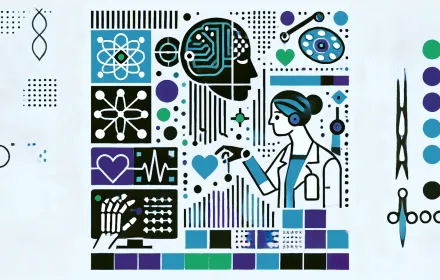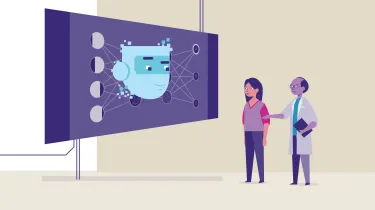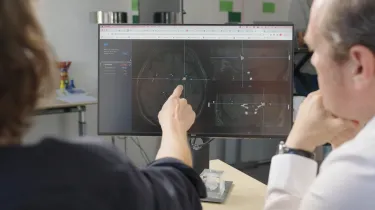
📊︎
Beginner
⏱
9 hours
🏅︎
Record of Achievement
🎁︎
For free
©
CC BY-SA 4.0
🌐︎
German
Overview
This course offers fascinating insights into the use of artificial intelligence in surgery. We demonstrate the translational aspect of research at the Department of Biomedical Engineering of the University of Basel and the University Hospital Basel, where AI applications are developed in direct collaboration between clinicians and researchers, aiming to enrich and facilitate clinical routine. Using case studies, you will learn more about the possible applications of AI in the diagnosis and treatment of brain tumours, the design of personalised cranial implants for 3D printing, and how it makes the planning of surgical facial feminisations more efficient and precise.
What content can I expect?
- Insights into translational research at the Department of Biomedical Engineering at the University of Basel and the University Hospital Basel
- Applications and potentials of AI in neurosurgery
- Innovative technologies for manufacturing patient-specific implants
- Practical insights into the possibilities of AI-assisted digital surgical planning in oral and maxillofacial surgery
What will I achieve?
Upon completion of the course, you will be able to ...
- explain basic AI algorithms such as segmentation, classification and diffusion models.
- describe various applications of AI in surgical planning.
- identify and critically evaluate the opportunities and limitations of AI in surgery.
- reflect on the changing role of medical professionals due to technological innovations in medicine.
- describe current and future developments in the field of AI in surgery.
What requirements do I need?
- No prerequisites
















